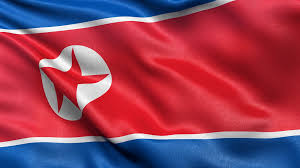Key Points:
- A review of possible outcomes of the Korean Summit
- Major General (Ret.) James “Spider” Marks and Major General (Ret.) Mastin Robeson, analyze possible scenarios and bargaining chips
- While an official end to the Korean War is a real possibility, a denuclearized North Korea is less so
Background:
After a year of turbulent exchanges and destabilizing missile and nuclear tests, President Trump and Kim Jong-Un are set to meet face to face. While President Trump is not the first U.S. president to receive an invitation to meet with a North Korean Leader, he is the first to accept.
Possible Scenarios:
Denuclearization: Not likely. The Democratic People’s Republic of Korea (D.P.R.K.) got to this point by building a nuclear capability with regional and intercontinental delivery means. North Korea’s viable and deployable, albeit nascent, nuclear and missile capabilities are the primary reason President Trump has agreed to meet with Kim. Without nukes, Kim remains bark without bite. This Kim can bite.
Freeze nuclear and missile development: Likely. The Summit must establish a baseline for both nukes and missiles. Currently, the intelligence community does not know, nor can it verify the inventory of North Korean nukes and missiles. A pre-condition for an agreement would have to be a complete verification protocol from the U.S. and the International Atomic Energy Agency (I.A.E.A.). In this case, verify before trusting…and then keep verifying.
Cessation of the Korean War: Likely. The war can “end” and the armistice can be replaced by a peace treaty, ending hostilities. The signed armistice established the Korean Demilitarized Zone (DMZ) and, in fact, recognized the political division the geographic separation put in place between North and South Korea (R.O.K.). A peace treaty is eminently achievable and timely.
A weakening of the six-party talks: Not likely. The six-parties (China, Russia, U.S., Japan, R.O.K., D.P.R.K.) remain intact, relevant, and a compelling voice (not necessarily a vote) in a future U.S.-N.K. agreement. The six-parties will want their independent national security concerns addressed.
Diplomatic recognition: Likely. The U.S. and North Korea will establish diplomatic recognition following a peace treaty.
Modify U.S.-Republic of Korea coalition: Not likely. U.S. forces will remain on the peninsula. Ironically, Kim Jung-Un has agreed to accept the U.S. military presence, while our President has inferred that there is a real opportunity to modify the U.S. military posture (or completely withdraw U.S. forces). Military exercises will continue and are essential to maintaining military readiness. If Seoul “requests” that the United States physically depart the peninsula and modify the U.S.-R.O.K. coalition, U.S. leadership would embark on a diplomatic offensive to convince Seoul to reconsider.
Remove economic sanctions against North Korea: Likely. The U.S. will agree to lift sanctions. It will not, however, agree to compensate North Korea for economic gains that North Korea might have realized if sanctions over the years had never been in place.
Reunification: Not going to happen…ever. Over 70 years and a deeply costly war, the separation between the North and South has become intractable. Reunification should remain politically aspirational to Seoul, Pyongyang, and the global community. However, it remains in both political and practical terms, unlikely. The scars and the political alliances are too deep.
Will the U.S. withdrawal from the JCPOA impact the June 12th talks between President Trump and Kim Jung-Un: Not likely. There is little causality between the situation in North Korea and Iran, especially as it pertains to the international community. Unlike the JCPOA stipulation, the U.S. will not be delivering pallets of money to Pyongyang. Sanctions against North Korea have not included “frozen funds,” as the D.P.R.K. essentially has no capital structure. North Korea has been isolated internationally for seven decades. To survive, it must open up. Although the U.S. will negotiate from strength, the Kim regime’s unpredictable behavior has always given Pyongyang an advantage. Don’t expect it but the U.S.-N.K. summit could be a bust.
“The U.S. position remains that nuclear weapons in the hands of Iran or North Korea is unacceptable, but it is a delicate road to walk. Our hope is that President Trump’s decision to pull our support of JCPOA sends the signal of a tougher stance. The ongoing hostilities in the Levant and the threat of hostilities on the Pacific Rim are concerning, and may be indicators that a tougher stance by the world leader is necessary. It is always better to negotiate from a position of strength. The timing of North Korea’s stated decision to seek a new path is heartening, and I do not see the decision to pull out of the JCPOA negatively impacting the on-going discussions on the Peninsula.”
Major General (Ret.) Mastin Robeson
Original Post 05/11/2018


